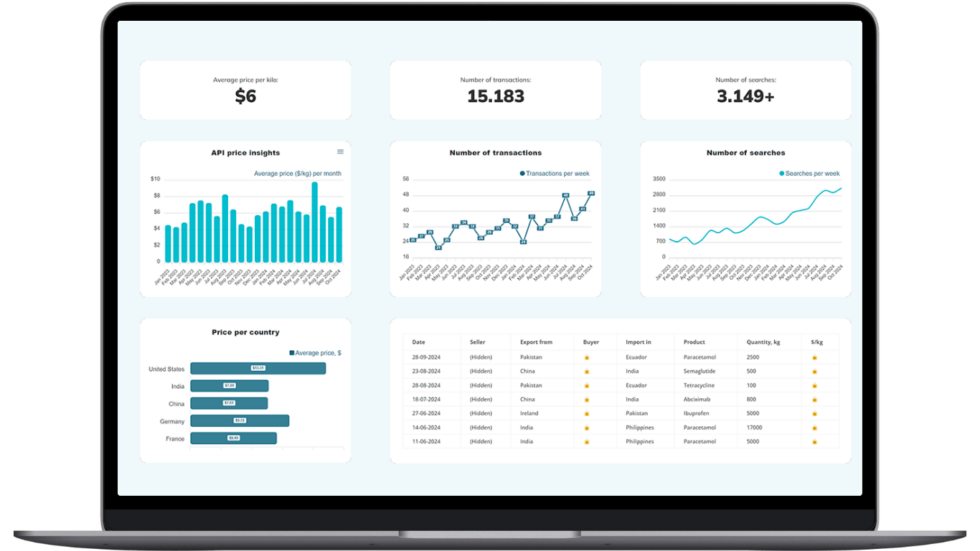7 Things I learned from working in the pharmaceutical industry

Ammar Badwy | Posted on December 9, 2022
I was about 20 years old when I started my first job in the pharmaceutical industry. I had to repack APIs from bulk into smaller quantities. It was my first experience working in a GMP environment too.
After this job, I worked in the sales department followed by the marketing department.
In 2016 I started Pharmaoffer. During our journey, we learned through trial-and-error what works best. Sure, we did things right but, we also made mistakes and learned a lot about how the pharmaceutical industry works.
1. Flexible
I used to think that all pharmaceutical companies act slowly and won’t adapt easily. To avoid human mistakes and to guarantee the quality and safety of medicines, pharmaceutical companies have lots of complicated procedures.
So it isn’t strange that companies tend to move slower because of this. During the first couple of months of 2020 however, at the beginning of the Covid-19 pandemic, I was quite surprised to see what companies were capable of when the situation became critical.
I saw many companies exploring creative ways to act quickly and serve the medical market and its patients. Flexibility is definitely possible when it’s really necessary.
2. Quality over Quantity
In the early days of Pharmaoffer, we’ve tried to reach as many pharma companies as possible. In the first year, we probably contacted over 20.000 people. I’ve learned that no matter how much effort you put into an email, it doesn’t work if you bulk sends it to many people.
Even if it’s just a small part of the email that is sent to more than one person, people will immediately feel that it’s not personal. It makes sense because when I receive emails myself, I always quickly scan whether it’s personally written to me or if I consider it “spam”.
Making personal emails costs lots of time and effort, but if you want to increase your chance of success, always write a personalized email and send it to just one person.
3. Bigger than expected
Everyone knows that there’s plenty of pharma companies based in the United States, Switzerland, China, Germany, and India. But what I didn’t know was how large the pharmaceutical industry is in more “undiscovered markets”.
It was an eye-opener to me, how many pharma companies there are based in countries such as Pakistan, Colombia, and Egypt. We actually have companies from over 200 different countries on our platform. Before we started, I wouldn’t have guessed this numbers at all.

Make Smarter API Decisions with Data
Access exclusive insights on global API pricing, export/import transactions, competitor activities and market intelligence.
4. Company vision
Most pharmaceutical companies will have an office building in an industrial zone. You’ll be working in a specific department such as purchasing or quality control, or in a production area or the warehouse.
As you don’t typically see the end-user every day, it’s easy to forget why we are all in this industry. In the end, improving health care and taking care of patients is what it’s about.
It’s important to have an inspiring company vision in order to see what the impact of your work actually is. By inspiring, I don’t mean some random words that look nice on your website. But, something that’s important to you and to everyone within the company. Some higher goal that you really try to accomplish.
5. Don’t focus on experience only
The pharmaceutical industry is a world of its own, and frankly, it’s a small world. When someone is leaving the company he or she will probably start working at another pharmaceutical company.
And that’s great because those people know the ins and outs and understand how things work within the pharma market. But, I do see the benefit of adding someone to your team without former pharmaceutical industry experience. Those people will have a critical and fresh look at how things are going and more importantly, they add other levels of experience to the team.
6. Keep it simple
“Playing football is very simple. But, playing simple football is the hardest thing there is”
– Johan Cruyff-
To me, this quote is not only about football. Keeping it simple can also apply to running a business.
Here is an example of when we were thinking too complicated: In the early days of Pharmaoffer we developed a feature dedicated for exclusive distributors. It works like this: When a buyer was from a specific country, the inquiry wouldn’t be sent to the supplier but straight to the distributor responsible for that area.
The idea behind it was fine and from a technical point of view, it worked great. But it was way too complicated and we actually decided to delete this feature. Nowadays, when we write a new text or develop a new functionality for the website we always ask ourselves, can we make it more simple.
7. Bad reputation
Maybe you know Martin Shkreli, he is the founder of Turing Pharmaceuticals. He bought the manufacturing license for the antiparasitic drug Daraprim and raised its price from $13.5 to $750 per pill. It is a factor of 56..
And this isn’t even the most expensive drug. We made a video about the top 10 most expensive drugs in the world.
It makes me angry, to be honest. I believe that business is not about finding the edge of what is commercially possible but using your moral compass to add value to the world and still make a fair amount of profit.
In the last couple of years, however, I’ve noticed that because of these types of “pharma cowboys” such as Shkreli, the entire pharmaceutical industry has gotten a real reputation problem. Sometimes it feels like you have to defend yourself when you tell people that you’re active in the pharmaceutical industry. Most people don’t see the difference between the intentions of pharma companies.
Like I said, I don’t introduce myself as someone who is working in the pharmaceutical industry anymore. It’s because of this that I always explain what I try to achieve for the benefit of the global population. I explain that my colleagues and I are fighting the global medicine shortage by making the supply side of pharmaceutical ingredients more transparent.
And that’s also one of the reasons why we created our series of pharma explainer videos. To give some insights into the pharmaceutical industry and also to show the inspiring side of this sector.






Check out all other blogs here!